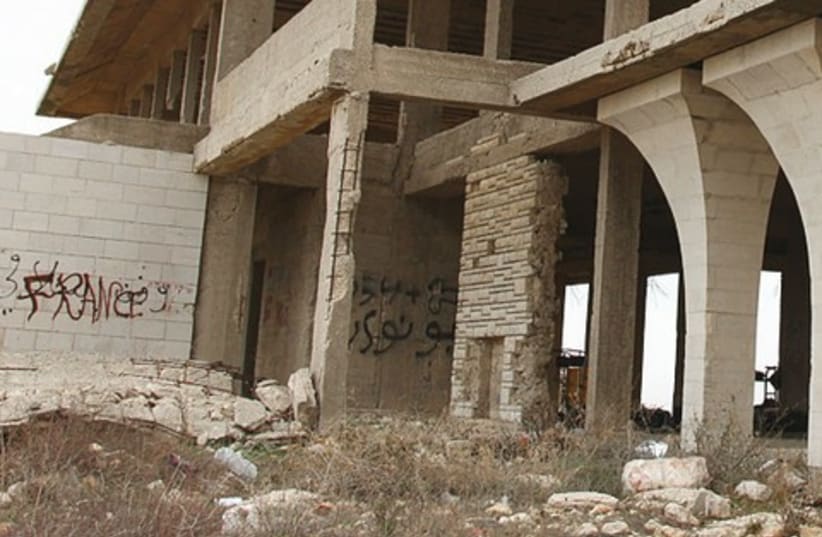The Muslim Wakf, which is overseen and financed by the Jordanian government, has retained control over some Muslim holy sites in Jerusalem, such as the Al-Aksa Mosque plaza.Any renovation work on the building would require a permit from the municipality. The municipality told the media they had not issued any permits for the building.“This is the site of the ancient Givat Shaul. It’s the second-most important archeological site in Jerusalem after the City of David [near the Old City],” says Silberstein. “They are trying to remove Jewish connections and exert Palestinian sovereignty in east Jerusalem, and that’s not something we want,” he says.Repeated attempts to contact the Wakf have been unsuccessful.According to Silberstein, who notified a bevy of right-wing activists and Knesset members of the illegal renovations, the renovation work was halted at the end of last week. Silberstein says that in the future, he wants to see the area renovated for tourists and archeologists.
Unfit for a king?
Construction has been halted at the old Jordanian royal summer villa.

The Muslim Wakf, which is overseen and financed by the Jordanian government, has retained control over some Muslim holy sites in Jerusalem, such as the Al-Aksa Mosque plaza.Any renovation work on the building would require a permit from the municipality. The municipality told the media they had not issued any permits for the building.“This is the site of the ancient Givat Shaul. It’s the second-most important archeological site in Jerusalem after the City of David [near the Old City],” says Silberstein. “They are trying to remove Jewish connections and exert Palestinian sovereignty in east Jerusalem, and that’s not something we want,” he says.Repeated attempts to contact the Wakf have been unsuccessful.According to Silberstein, who notified a bevy of right-wing activists and Knesset members of the illegal renovations, the renovation work was halted at the end of last week. Silberstein says that in the future, he wants to see the area renovated for tourists and archeologists.